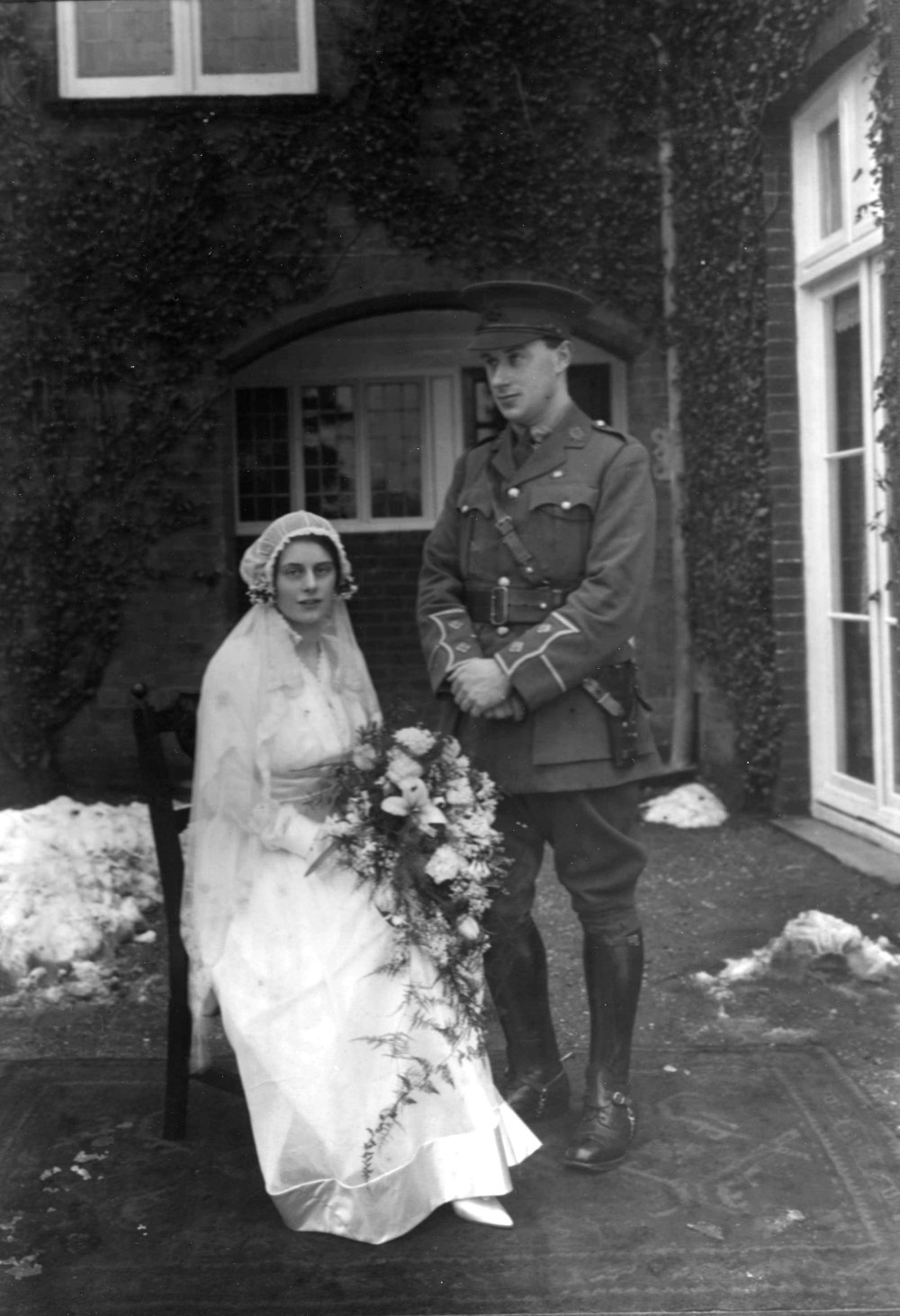
Alexander Joseph Patrick Wilson was born in Dover on the 24th October 1893.
He had Irish ancestry.
His father, also called Alexander, was a sergeant in the British Army’s Hospital Corps and his mother Annie was a publican’s daughter from Carlow, Ireland.
His grandfather Hugh was one of the founder members of the British Army’s hospital corps who received the China War medal for his part in the Second Opium War of 1861 and died at the early age of 31 in 1870.
He lies buried in an unmarked grave in the grounds of Netley hospital overlooking the Solent- a fate that would initially be visited upon his grandson in 1963 in a cemetery in Portsmouth.
Despite such modest beginnings the young Alexander Wilson benefited from his father’s dogged forty-year army career where he rose from the rank of boy bugler at Aldershot, to Lieutenant Colonel Quartermaster in the Royal Army Medical Corps in charge of all medical supplies to the Western Front in 1918.
As far as we have been able to establish the oldest son of this RAMC Quartermaster had a solid education at Roman Catholic schools; first St Joseph’s College, Hong Kong, and then St Boniface College in Plymouth.
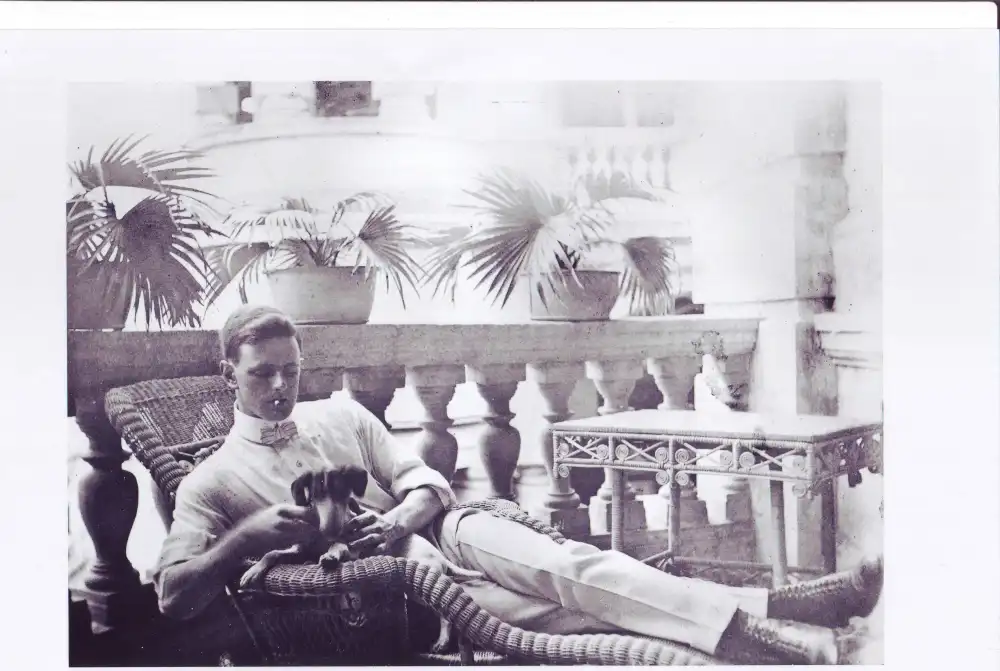
In nearly everything we say about Alexander Joseph Patrick Wilson we have to qualify the narrative with the expression ‘as far as we have been able to establish.’
This is because despite publishing 24 books of fiction and writing a further 4 unpublished novels, enjoying considerable success and fame as a crime, espionage and romantic writer during the 1930s, most of the younger Alexander Wilson’s life is shrouded in mystery.
There is as much suspense and imaginative construction in his actual life as there is in the twists and turns of the plots of his popular novels.
Perhaps even more.
We know for certain that he worked for the Secret Intelligence Service between 1939 and 1942, spying on the communications of embassies and diplomatic legations in war-torn London.
We know for certain he taught English Literature as a professor at Islamia College, University of Punjab in Lahore between 1925 and 1931, eventually taking over as Principal in 1928.
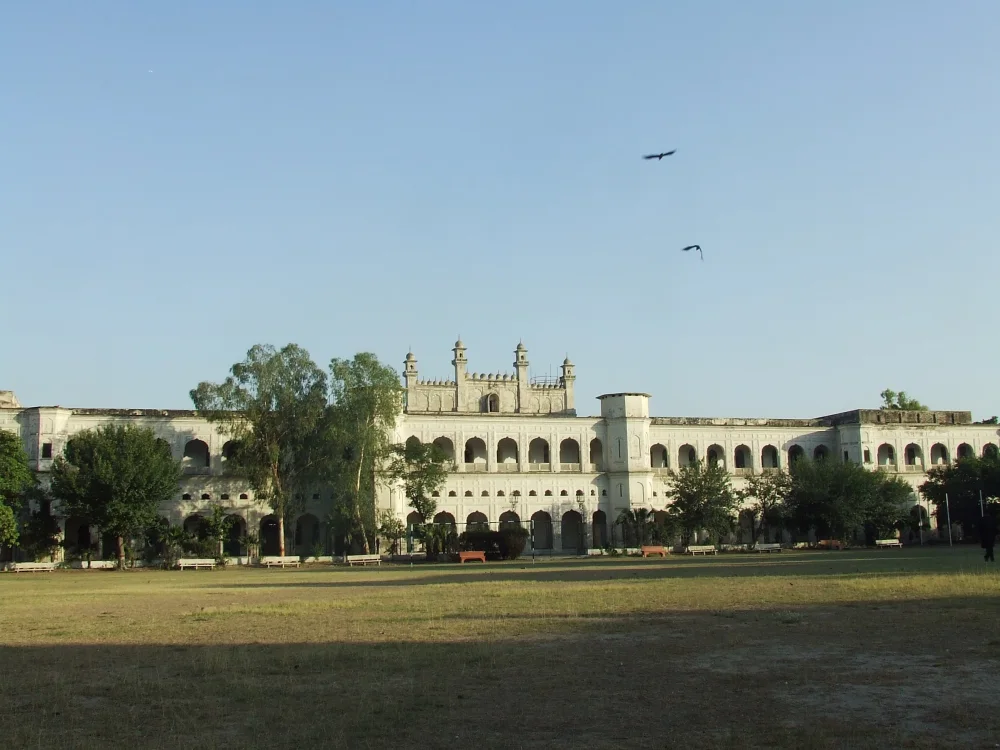
We know for certain he spoke several European and Oriental languages with fluency.
We know for certain that he held a commission in the Royal Army Service Corps during the Great War, with the rank of lieutenant and responsibility for conducting motor transport convoys from Avonmouth to the British Army in France at Le Havre and Rouen. We know for certain he served in the Merchant Navy and travelled the world.
We know for certain that he was represented by the country’s leading literary agents, Curtis Brown, and then John Farquharson, that 4 of his novels were published by Longmans, Green and Company, 14 by Herbert Jenkins, 1 novel under the pseudonym, Geoffrey Spencer, was published by T Werner Laurie, he edited and co-edited 3 academic books published in Imperial India, and it is almost certain he wrote 2 further ‘hack’ thrillers under the pseudonym Gregory Wilson and 3 further novels for Herbert Jenkins in 1938 and 1939 featuring the exploits of another fictional intelligence chief called ‘Callaghan.’
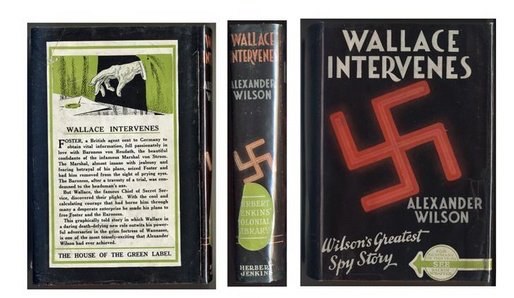
The Colonel Callaghan novels were written under the pseudonym ‘Michael Chesney’ in honour of the son he abandoned in 1941 never to see again. For Mike Shannon who began the astonishing investigation into his father’s life was christened ‘Michael Chesney Wilson.’
We know for certain that Alexander Joseph Patrick WIlson died on 4th April 1963 in his seventieth year, that he married four women and had 7 children.
We also know that in the 1940s, 50s and 60s he worked in cinema management, in an accident and emergency department as a hospital porter, and a clerk at Sandersons Wallpaper factory in Perivale.
We know for certain that he is buried in Milton Cemetery Portsmouth, only a few feet away from the monument to Commander Lionel ‘Buster’ Crabb, another MI6 operative who died mysteriously after being engaged to dive beneath the hull of a Soviet cruiser in Portsmouth Harbour in 1956.
We know for certain that he twice appeared at Marylebone Police Court in 1944 and 1948. In the first case he was prosecuted and fined for posing as a Colonel in the Indian Army and wearing false decorations.
In the second he was prosecuted and jailed for embezzling takings at a cinema he managed in Hampstead.
We know for certain that he served for several months as an emergency war constable in the Metropolitan police between 1939 and 1940.
We know for certain that after being invalided out of the British Army in 1916 after receiving a disabling injury to his knee, he tried everything to re- enlist and serve his country, even turning up at a recruitment depot in 1917 and pretending he was fit and ready to return to the front-line.
But the War Ministry had a file of his medical records, and in the face of his rejection he later joined the merchant marine.
It would appear from surviving merchant navy records he served as a purser with the Scottish shipping line Shaw Savill and Albion in 1919.
Under his real identity it would appear his service was restricted to one ship between May and September of that year, but from the content of his novels it would appear his experience of the merchant navy and travels may have taken him all around the world on Atlantic and Pacific routes to Australia, New Zealand, South America, USA and Canada.
We know for certain that something went wrong when he was managing the trading of ship’s stores for a surrendered German passenger liner, the SS Prinzessin, and led to his arrest and prosecution in Vancouver in September 1919.
He was arrested the day after his father died thousands of miles on the other side of the world while on leave from France at Minster, Isle of Sheppey.
He was subsequently sentenced to six months hard labour in one of North America’s most notorious jails, the Oakalla Prison Farm, a veritable and notorious model for the gaol culture represented in the film ‘The Shawshank Redemption.’
We know for certain that when he was admitted to the Farm, only a few weeks after its first death row inmate had been hanged in the yard, Alexander Wilson at the age of twenty six bore shrapnel wounds to his chest and arm; way beyond anything referenced in his MOD file concerning the accident to his knee.
There had been a curious contradiction in his army file. One document referred to being invalided because of illness and injuries while serving overseas.
Another stated he was not entitled to any war medals because he had not been on official service overseas.
The shrapnel wounds covering a large part of his left torso and extending to his shoulder and lower arm seemed to be separate from the accident injury to his knee.
What we also know for certain is that he was a charming, likeable, charismatic, and courteous man, who was much loved by the women and children in his life who were incredibly loyal despite a social environment of economic insecurity, and the bizarre and perplexing rituals of the intelligence world.
For it is almost certain that for sometime Alexander Joseph Patrick Wilson may have been an intelligence agent and intelligence officer who lived and worked in a cover identity that elevated his education to Repton Public School, Cambridge and Oxford Universities, and transformed his family pedigree to the status of a cousin of Winston Churchill, son of a gallant Colonel in the Blues and Royals, killed in action in 1914, and a mother who was a true blue Marlborough.
If intelligence is not the explanation for the double identity, then we cannot exclude the possibility he was a charlatan and constructed a double identity that gave him a passport to opportunity he would not otherwise have had.
Alexander Joseph Patrick Wilson had a double life.
We do not know when it started.
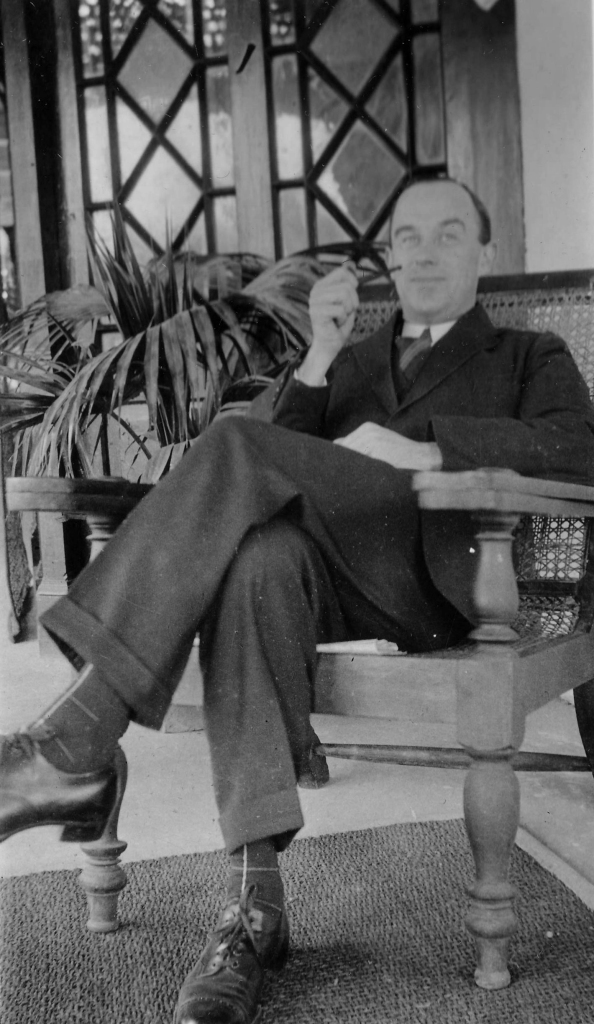
It appeared to begin in 1925 when his parallel existence as Alexander Douglas Gordon Chesney Wilson answered an advertisement in The Times for the post of Professor of English Literature at Islamia College, University of Punjab. Within weeks he was on a passage to India.
He left behind in Southampton his first wife Gladys and three young children, Adrian, Dennis and Daphne.
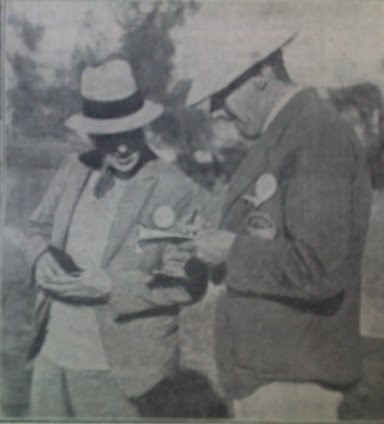
From that point on Alexander Wilson was two people. And we move from the realm of fact and certainty to probability and speculation. Wilson did not leave a diary.
As a result of the release of a redacted file to the National Archives in 2013 we now know for certain that his career in MI6/SIS ended in controversial circumstances.
The file reveals that a translator/linguist in Section X of the Secret Intelligence Service had been accused of faking a burglary at his flat, was in serious trouble with the police and had to resign in October 1942.
The file also indicates that the disgraced officer, almost certainly Alexander Wilson, was investigated by MI5/Security Service for fabricating his reports of bugging the telephone communications of the Egyptian Embassy.
The third ‘C’ of MI6, Sir Stewart Menzies, said: ‘I do not think it at all likely that we shall again have the bad luck to strike a man who combines a blameless record, first rate linguistic abilities, remarkable gifts as a writer of fiction, and no sense of responsibility in using them!’
We also know for a fact that the MI5 officer investigating Wilson, Alex Kellar, was working for the KGB agent at MI5, Anthony Blunt.
Blunt had a Soviet agenda to manipulate the situation so that he was able to have more control over surveillance of embassies and diplomatic delegations in war-time London.
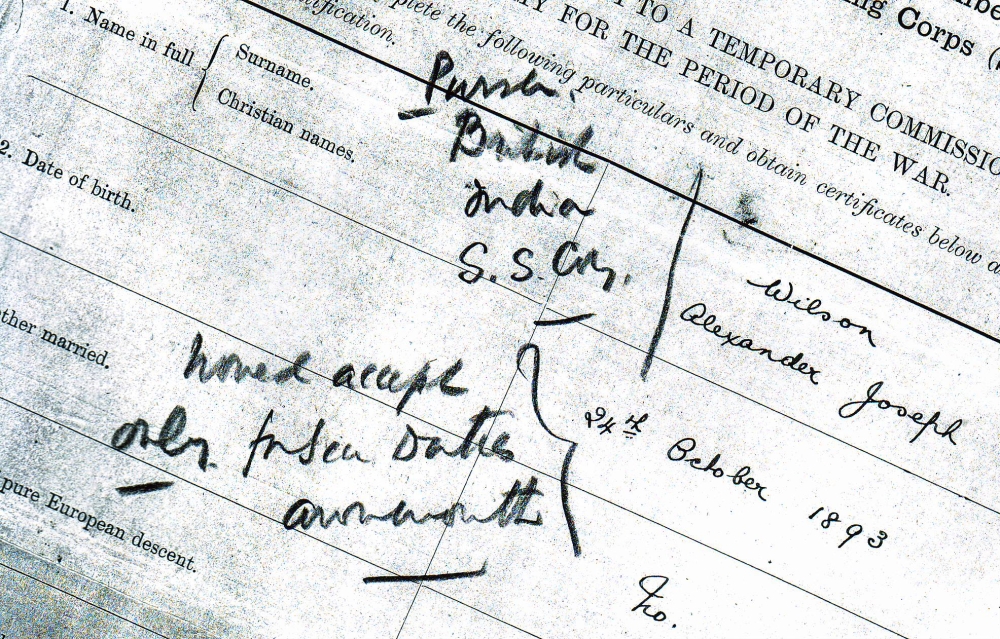
At the same time MI5, as part of the intelligence turf war, wanted to wrestle the function away from MI6.
Its Director-General Sir Brigadier Sir David Petrie stated that the fact Wilson was no longer in the service was: ‘…perhaps some small compensation for the amount of trouble to which his inventive mind has put us all. A fabricator, such as this man was, is a great public danger.’
Proceedings under the Freedom of Information Act to release files have not been able to throw any more light on what went on.
The withholding of Alex Kellar’s report and other SIS files on Alexander Wilson has been unsuccessfully challenged with appeals to the Information Commissioner and Information Tribunal First Tier.
The file titled ‘The Affair of the Egyptian Ambassador’ and dated 1943 is contradicted by many other files in the National Archives indicating the Egyptian diplomatic service was collecting intelligence through their embassies and passing this onto Nazi Germany.
The London Ambassador was also criticised for plotting the overthrow of the pro-British Egyptian government in Cairo, and there was a Station X Ultra interception file revealing that he was paving the way for a relationship with the Soviet Union after the end of the war.
Wilson’s life after the Second World War was devoid of writing commissions and publications, and became a constant struggle to make a living.
His career as a cinema manager was terminated by his conviction for defrauding takings in Hampstead in 1948.
He spent many years as a porter in a hospital casualty unit in West London, and then kept up the bizarre pretence of going back to work at the Foreign Office, but was actually clerking at a wallpaper factory.
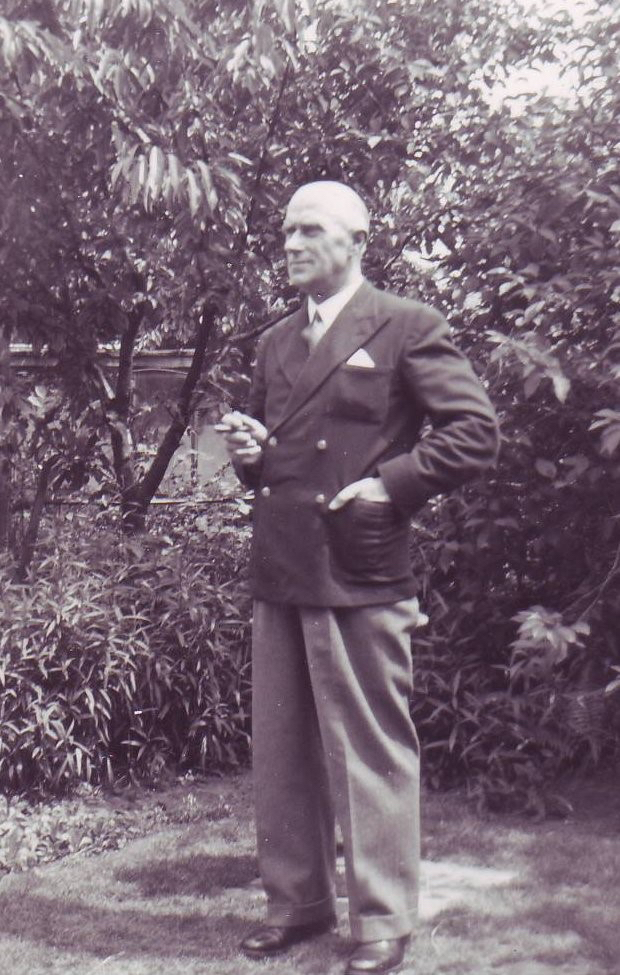
The women in his life and the mothers of his children were enormously impressive.
They were pioneers in a way for each of their epochs.
Gladys was his equal in their touring theatrical repertory company from 1920 to 1925.
After he left for his teaching post in British India she brought up three children in straightened circumstances and could not depend on her husband for financial support for the rest of her life.
Dorothy was a succesful actress touring in British India in place of Dame Sybil Thorndike.
She was a pioneer of radio drama on early All India Radio.
She worked as Wilson’s secretary during his long absences and after they separated in 1941 forged her own career eventually managing the intelligence records of the East Riding of Yorkshire police as well as bringing up their son as a single parent.
Alison met Wilson when she was working as a secretary at MI6 in 1940.
She heroically dealt with all of the depredations and chaos of Wilson’s duplicity, lies and calamitous career failures and changes.
She also brought up two young sons in desperate conditions of poverty.
The remarkable private memoir she gave to her children suggests that she had her own individual writing style and ability.
She survived living with Alexander Wilson- staying with him until his death in 1963, but then forged her own path, gaining a divinity degree and writing a book on faith.
Wilson’s fourth wife, Elizabeth, was a career nurse and something impelled her to return to Scotland with their young son where she began a new life during the 1960s.
Wilson’s children and wider extended family of grandchildren and great grandchildren have had and are having successful careers in the arts, public services, teaching, and the armed services.
Dennis B. Wilson, the second son of his first marriage, is a respected poet having been a guest of honour of the Royal Family at the 2013 Buckingham Palace reception celebrating contemporary poetry, and receiving an honorary fellowship from the University of Southampton.
The multiple award-winning actress, Ruth Wilson, is one of Alexander Wilson’s grandchildren.
Ruth has executively produced and starred in a three part BBC dramatisation series premiered from Tuesday 27th November 2018. She has played the part of her grandmother Alison Wilson.
The production company, Snowed In, have based this series on Alison’s unpublished memoir and the first edition of Alexander Wilson’s biography, ‘The Secret Lives of a Secret Agent’ which was published in 2010 and is now out of print though the Kindle edition is still available.
A second shorter, revised and updated edition of the biography has been published by Kultura Press on 30th November 2018.
The US and International Edition has been published in January 2019 and is available in the USA from Amazon.com, Barnes and Noble and other online sellers.
-o-
Extract from ‘Confessions of a Soundrel’ by Alexander Wilson writing as Geoffrey Spencer in 1933. (pp 284, 286 and 287 published in London by T Werner Laurie.
As I was giving my orders a German aeroplane, flying low, came over. A bomb burst near by, and every man, prisoners and Tommies alike, made a rush for shelter. I was following, when came another shattering roar. I felt a terrific shock, the world seemed to be spinning round, jumbling in hopeless confusion khaki and grey figures, tank and trench. A silence surrounded me and a dreadful darkness. For me the battle of the Somme was over. […]
A sudden feeling of horror came over me. Had I lost a limb or limbs? Such an eventuality was, to my mind, appalling. I would infinitely rather die than continue to live maimed and a cripple. She read my thoughts.
“You have not lost any limbs,” she said gently, “but you have a very bad abdominal wound, and your left shoulder is shattered.”
I smiled. It sounded nasty, but was preferable to what I had begun to fear. She did not return my smile; instead regarded me with a look of deep pity. […]
A moment later she went out, returning, after a short interval, with a major of the Royal Army Medical Corps and another nurse, rather an elderly woman, in the uniform of the Military Nursing Service. From the doctor I discovered that my chances of living were not great, but that, if I recovered, I would be able to carry on almost normally.
“Your left arm won’t be a great deal of use to you,” he said, “and your abdomen will be weak, but you won’t be a chronic invalid.”
“There’s something in that,” I murmured. “I think I’ll decide to go on living.”
“That’s the spirit,” he remarked cheerfully.
-o-
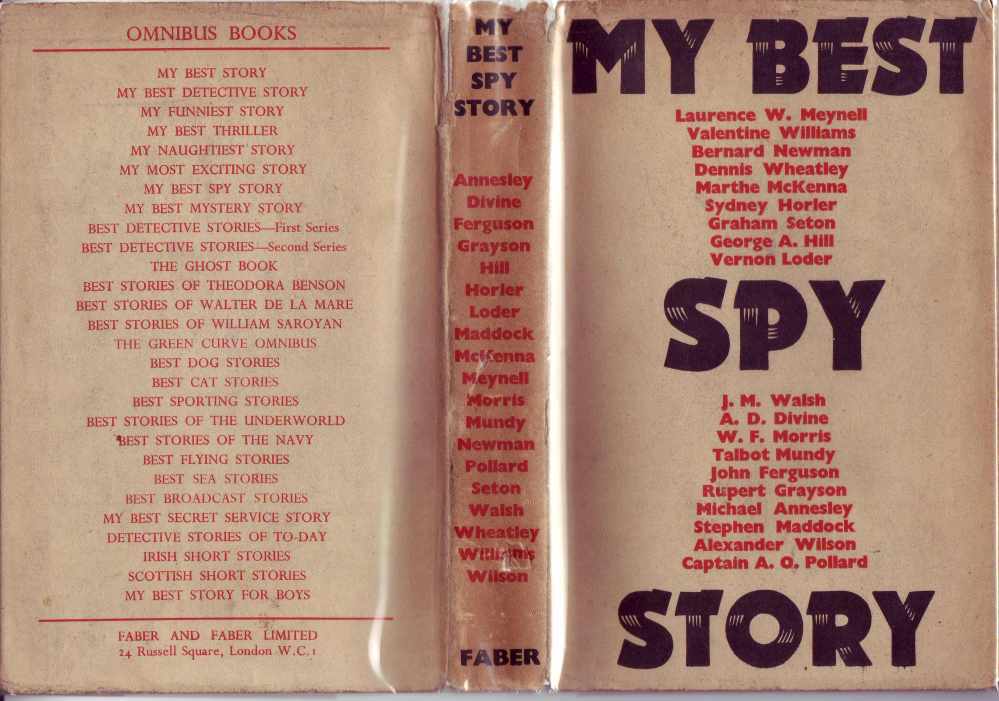
Thank you for all of this REALLY INTERESTING information!
A loyal fan….
LikeLike
Dear Shirley,
Many thanks for your positive feedback. It is much appreciated. Sincerely and respectfully, Tim Crook
LikeLike
Absolutely fascinating story which proves the statement that life is stranger than fiction.
I just finished watching the program Mrs. Wilson — thoroughly fascinating.
LikeLike
Dear Sherry, It’s very thoughtful of you to provide us with this feedback, thank you. Yes, we could not agree with you more. Life is stranger than fiction and this is very much the truth in this real life story. Sincerely and respectfully, Tim Crook.
LikeLike
Fascinating article….I intend to follow this story, hoping to learn more as time goes on!
Thank you!
LikeLike
Dear Becky, Many thanks for your feedback and interest. It is much appreciated. Sincerely and respectfully, Tim Crook.
LikeLike
Just finished watching Mrs.Wilson. When I first started with it, I thought: how coincidental that Ruth Wilson is playing Mrs. Wilson. I didn’t know until reading your comments that she was Alison’s grand daughter. As another person wrote, truth IS stranger than fiction. No one could’ve made this up! Absolutely amazing story. So happy to have seen it on PBS.
LikeLike
Dear Claudia, Many thanks for your feedback. It is most appreciated. You are absolutely right, the truth is very much stranger than fiction. Sincerely and respectfully, Tim Crook.
LikeLike
Amazing story and I totally enjoyed the whole movie. Her grandfather would have been very proud of Ruth Wilson for her acting talent. I also wondered how Mr. Wilson was able to afford to provide for 4 families..what were his explanation when he never came home with decent pay.
LikeLike
Dear Jeanie, Many thanks for your feedback. The second edition of the biography provides more information on how he existed with four different families. When he was employed full-time in a very good job, e.g. Professor and Principal of Islamia College (1925-31) he seemed to be able to provide for his family in Southampton and second wife Dorothy while living in Lahore, which was then in British India. When he was full-time with the Foreign Office between 1939 and 1942, again, it would seem he was able to distribute his income, but most of the time his wives went out to work, and/or when times were economically difficult they would borrow or depend for support from relatives. Sincerely and respectfully, Tim Crook.
LikeLike
Mr. Crook, I’m just finishing up your fantastic book. I asked my public library to purchase a copy and they purchased 5! Was intrigued with the PBS production and it led to your amazingly in depth view of Alexander Wilson’s life. NOW I want to read all his novels.Thank you so much for pursuing this story. We are all the better for the information you’ve uncovered.
Sincerely, Laura Overturf
LikeLike
Dear Laura, Thank you so much for the feedback on the book and research I have done. It is hugely appreciated. I believe some of his best fiction remains to be republished- in particular the novels Mr Justice, The Crimson Dacoit and Confessions of a Scoundrel. I will do my best to encourage this publication outcome. Sincerely and respectfully, Tim Crook.
LikeLike
Mr Crook, I was just about to respond to the previous page regarding the books written then jumped on to this page first and glad I did. I hadn’t got around to connecting the writer with thay wonderful adaptation on TV. I have just acquired a copy of The Crimson Dacoit by Alexander Wilson which let me on my discovery to your page. It’s in wonderful condition apart from the usual shelf rubbed edges and slight bending on the corners, plus some foxing on the outside of the pages and no dust cover. I just love collecting all old books especially in different colours whatever the subject! I was looking to see if it was worth anything out of curiosity. Kind regards Michelle
LikeLike
Dear Michelle, Many apologies for the delay in replying to you. I completely appreciate your enthusiasm for collecting old books; something I’ve done all my life and can’t stop doing. The Crimson Dacoit is an excellent novel of its time and was published in two formats. The first edition of the standard size that were usually sold for seven shillings and sixpence (7/6), mainly for the private reading libraries operated by retails chains such as Boots and W H Smiths, (You would borrow them for a week for two old pence) are fairly rare because Herbert Jenkins published the novel and distributed this much more widely in a smaller ‘one shilling library edition.’ In the secondhand market currently it would seem original Alexander Wilson novels without the dust-wrapper published before 1941 sell for between £30 and £60. They command higher prices when combined with the cover. Sincerely and respectfully, Tim Crook.
LikeLike